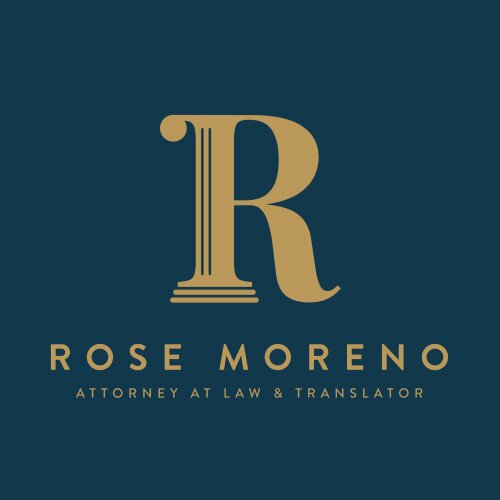Best Estate Planning Lawyers in Panama City
Share your needs with us, get contacted by law firms.
Free. Takes 2 min.
List of the best lawyers in Panama City, Panama
About Estate Planning Law in Panama City, Panama
Estate planning in Panama City, Panama, involves determining how your assets will be distributed upon your death. Crucial components of estate planning include creating wills, designating beneficiaries, setting up trusts, and laying out funeral arrangements. Panama's laws respect personal liberty, allowing residents to leave their estate to whomever they please, with no obligations to biological relatives. As long as all documentation complies with the law, and the citizen has full capacity, their will is legally binding.
Why You May Need a Lawyer
While it's possible to handle some estate planning tasks on your own, most people benefit from legal guidance. Particularly when your estate is large, when you own property in multiple countries, or if you have complex family situations, it's wise to seek professional assistance. A lawyer can help you avoid potential conflicts, minimize taxes, and ensure that your estate is divided according to your wishes. In Panama, a lawyer will also help prepare your testament, which must be written in Spanish to be legally valid.
Local Laws Overview
Panamanian estate law is based on Civil Law principles and is influenced by Spanish Civil Law. The key aspects of estate law in Panama include forced heirship rules, lack of estate tax, and formality requirements for wills. Forced heirship applies for anyone who dies without a written will. In this case, your estate will generally be split among your closest relatives. If you do have a will, there are strict requirements for its format and execution for it to be considered legally valid.
Frequently Asked Questions
1. How do I draw up a will in Panama City, Panama?
In Panama, a will or testament needs to be written in Spanish and legalized before a Notary Public to be valid.
2. What happens if I die without a will in Panama City, Panama?
If you die intestate, that is, without a will, the Panamanian laws of forced heirship will apply. This generally means your assets will be shared among your closest relatives.
3. Are there estate taxes in Panama City, Panama?
No, Panama does not have an inheritance or gift tax.
4. Can a foreigner draft a will in Panama City, Panama?
Yes, foreigners can draft a will. This can be particularly valuable for those who own properties or other assets in Panama.
5. Can I disinherit my family in Panama City, Panama?
While forced heirship applies if a person dies without a will, if you have a will, Panama law respects personal liberty, that is, you can leave your estate to whomever you choose.
Additional Resources
The Public Registry of Panama City and The Notary Public office are valuable resources if you need factual information about estate planning laws in Panama. The Public Registry provides formal registration services required for legal processes, while The Notary Public Oversees procedures such as the legalization of wills and testaments.
Next Steps
To facilitate your estate planning, you should consider seeking legal assistance. Start by obtaining and organizing necessary documents, such as real estate deeds and financial statements. Then, schedule consultations with estate planning attorneys who can clarify your doubts and guide you through the Panamanian estate planning process based on your specific circumstances.
Lawzana helps you find the best lawyers and law firms in Panama City through a curated and pre-screened list of qualified legal professionals. Our platform offers rankings and detailed profiles of attorneys and law firms, allowing you to compare based on practice areas, including Estate Planning, experience, and client feedback.
Each profile includes a description of the firm's areas of practice, client reviews, team members and partners, year of establishment, spoken languages, office locations, contact information, social media presence, and any published articles or resources. Most firms on our platform speak English and are experienced in both local and international legal matters.
Get a quote from top-rated law firms in Panama City, Panama — quickly, securely, and without unnecessary hassle.
Disclaimer:
The information provided on this page is for general informational purposes only and does not constitute legal advice. While we strive to ensure the accuracy and relevance of the content, legal information may change over time, and interpretations of the law can vary. You should always consult with a qualified legal professional for advice specific to your situation.
We disclaim all liability for actions taken or not taken based on the content of this page. If you believe any information is incorrect or outdated, please contact us, and we will review and update it where appropriate.











